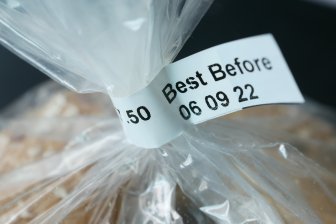The release of new details chronicling the death of off-duty police officer Catherine Campbell is raising questions about the impact it could have on jurors if the case goes to trial.

READ MORE: Court documents detail Catherine Campbell’s death
Halifax defence lawyer Luke Craggs says the release of additional details that haven’t been proven in court speaks to “a hole in the criminal code.” He’s speaking out following the publication of a document called an Information to Obtain a Warrant, it’s filed by the police with the provincial court to justify the need to obtain a DNA sample from her accused killer Christopher Garnier.
Craggs isn’t involved in Campbell’s case however he says the circumstances aren’t a new challenge for defence lawyers.
The document is based on evidence gathered by the police in the course of the investigation, however none of it has been proven in court. While the type of information contained in the document would be under a publication ban if it was disclosed during a pre-trial motion like a bail hearing, there’s nothing that allows the police to seal this type of document.
READ MORE: Accused dealt with Catherine Campbell’s body in ‘cavalier’ way: Police
“It’s inconsistent,” Craggs said, because the information is treated differently based on how it’s presented.
“The purpose of publication ban is to minimize the chance that potential jurors see things which they should not see, which will affect their ability to try the case fairly,” Craggs said.
- 2 teens charged with murder in case of 16-year-old killed outside Halifax mall
- Green Party deputy leader given jail sentence for Fairy Creek old growth protests
- Cars torched, explosions heard in suspected arson in Montreal neighbourhood
- Gas station clerk stabbed several times during violent attack at Ultramar in Montreal
The problem is that if any of the information in the document is ruled inadmissible, there’s a chance jurors will have already seen it through news reports.
“Once that is out there in the public it’s difficult for even the most fair-minded juror to pretend that they don’t know that the guy confessed,” he said.
Police wanted to seal the warrant
If releasing the information risks a police investigation or an informant, then police can ask for the documents to be sealed, police spokesperson Theresa Rath said. However, in this case there was no risk to the investigation so police couldn’t ask for a publication ban.
READ MORE: Truro police, firefighters, paramedics show support in funeral for Const. Catherine Campbell
“If we could, we would like to have sealed this DNA warrant because we want to spare the family the details,” she said.
Garnier’s lawyer did not respond to requests for comment. He is charged with second-degree murder and indecently interfering with a body. A preliminary trial is set for July.




Comments